(May 11, 2023) In a world grappling with myriad health challenges, the silent yet pervasive impact of blood clots and neuro-diseases often goes unnoticed, overshadowed by more visible afflictions. Amidst this landscape, is an Indian medical scientist, Dr. Sonu Bhaskar – CEO and Director of Global Health Neurology Lab, a consulting and social enterprise dedicated to research, policy, and innovations in global health and neurology, and the Founding Director of NSW Brain Clot Bank – whose work stands as a beacon of hope for neuro-divergent individuals and those touched by the debilitating effects of neurological disorders.
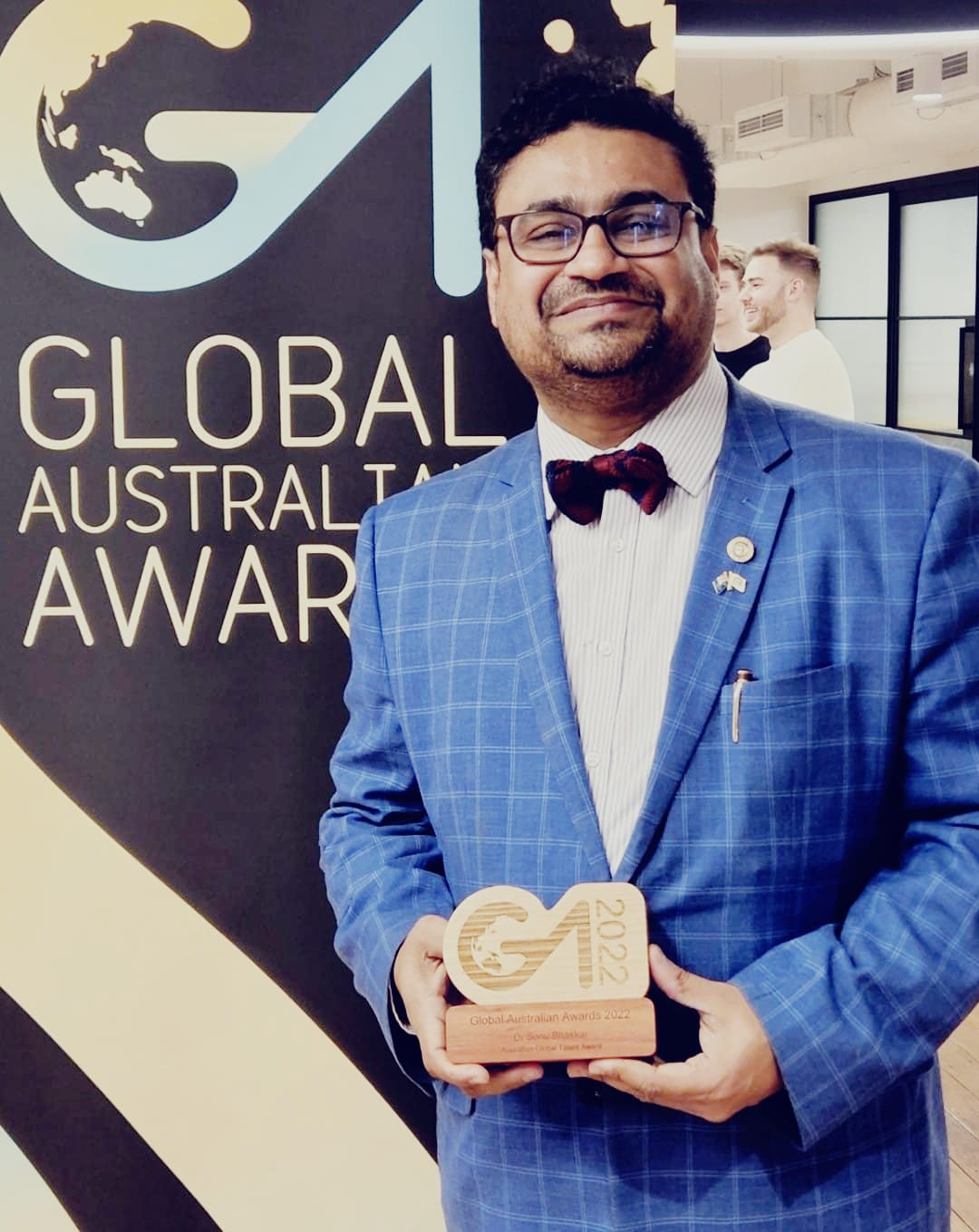
From the humble beginnings of his childhood in Muzaffarpur, Bihar, to his groundbreaking accomplishments as a medical entrepreneur, Dr. Bhaskar’s journey embodies the power of unwavering dedication and the pursuit of knowledge. With the establishment of the world’s first Blood Clot Biobank, the health leader has etched his name in the annals of medical history, all the while striving to uplift the lives of those who share his passion for science and overcoming adversity. “I think we all need to think like global citizens, and together as a community try to come up with solutions that plague the world today,” shares the Global Indian, as he connects with me over a call from Sydney. “My work as a medical professional, as a scientist, and as a humanitarian is all about the community, and community is secular. The idea of diversity describes my ethics,” he adds.
The recipient of the 2023 IABCA Science, Research and Development Award, 2022 Australian Global Talent, and 40 Under 40 Most Influential Asian Australian, Dr. Bhaskar’s journey weaves an inspiring narrative of resilience, determination, and triumph.
The pursuit of education
Growing up in Muzaffarpur, Bihar, the health leader faced numerous challenges during his early days. As a shy, introverted child with dyspraxia and a stammer, he found refuge in books and science. “I come from a very humble background. I have a younger sister and brother, and we grew up with limited means. But the perseverance and the desire to learn was embedded in my family. In those days, there would be massive power cuts in Bihar, and the only way to study after school was below a kerosene lamp. I participated and won in numerous national Olympiads and competitions while I was at school,” says the health leader, who has been inspired by Nobel laureates, Rabindranath Tagore and Santiago Ramón y Cajal.
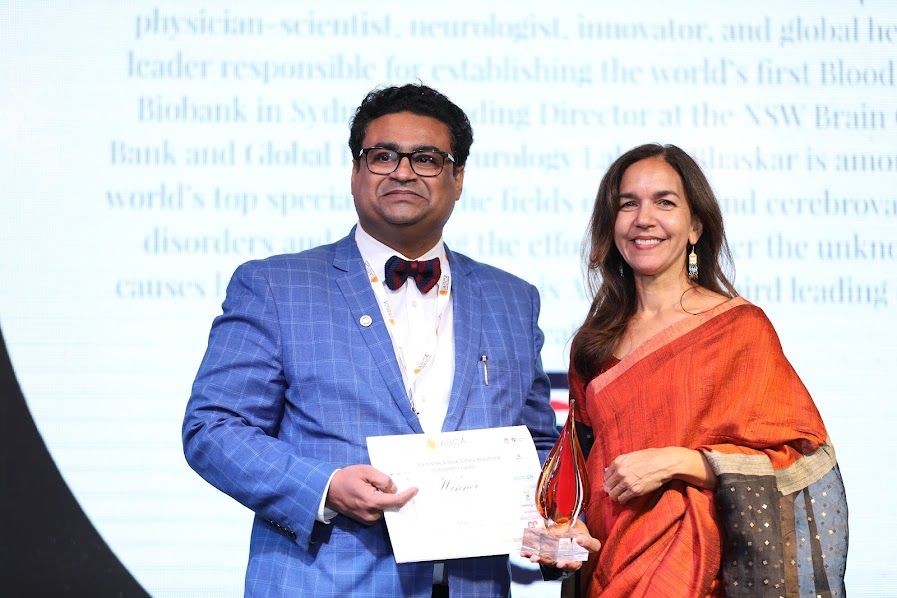
Despite limited resources, he excelled academically, fueled by his passion for learning and a supportive family. “It was quite challenging at times, even suffocating at times. The knowledge about neurodiversity was very limited at the time. I would find it difficult to do things like tie my shoelaces, and was also bullied at school. My father was a clerk at a bank, so he couldn’t afford to buy us siblings new books. But, I would frequent the second-hand bookshop with him. The seller became a friend of mine later, and even gave me many books for free,” the health leader laughs, adding, “However, my family – especially my grandparents – were very supportive and always encouraged me to thrive. I have always been driven by learning more about medical science, and they gave me a lot of courage to pursue my dreams.”
Soon after he finished school, the health leader got a chance to study medicine and neurosciences at the University of Zaragoza (Spain), and it was there that his romance with neuroradiology, neurophysiology, and neuroimaging techniques began. His research particularly focussed on stroke patients, for which he received highly competitive fellowships/awards, including European Union’s Marie Curie Fellowship and Prof AR Rao Young Scientist Award. The health leader went on to work at the leading medical centres and research institutes in the Netherlands, Spain, and even India.
Path to stroke research
After establishing a reputation as a leading clinician scientist in Europe, Dr. Bhaskar migrated to Australia in 2013 and acquired his Australian medicine degree (Doctorate in Medicine) at the University of Newcastle. Always fascinated by the human brain, he went on to pursue a post doctorate at Western Sydney University and the University of Sydney. “There are certain strokes called cryptogenic stroke, for which we do not know the cause. In 2015, a revolutionary treatment for this – called endovascular thrombectomy – came up, which allows for the removal of blood clots, and helped the patients with recovery. It made me wonder if I could look at these blood clots and analyse the reason for strokes, which could help millions of patients,” recalls the health leader.
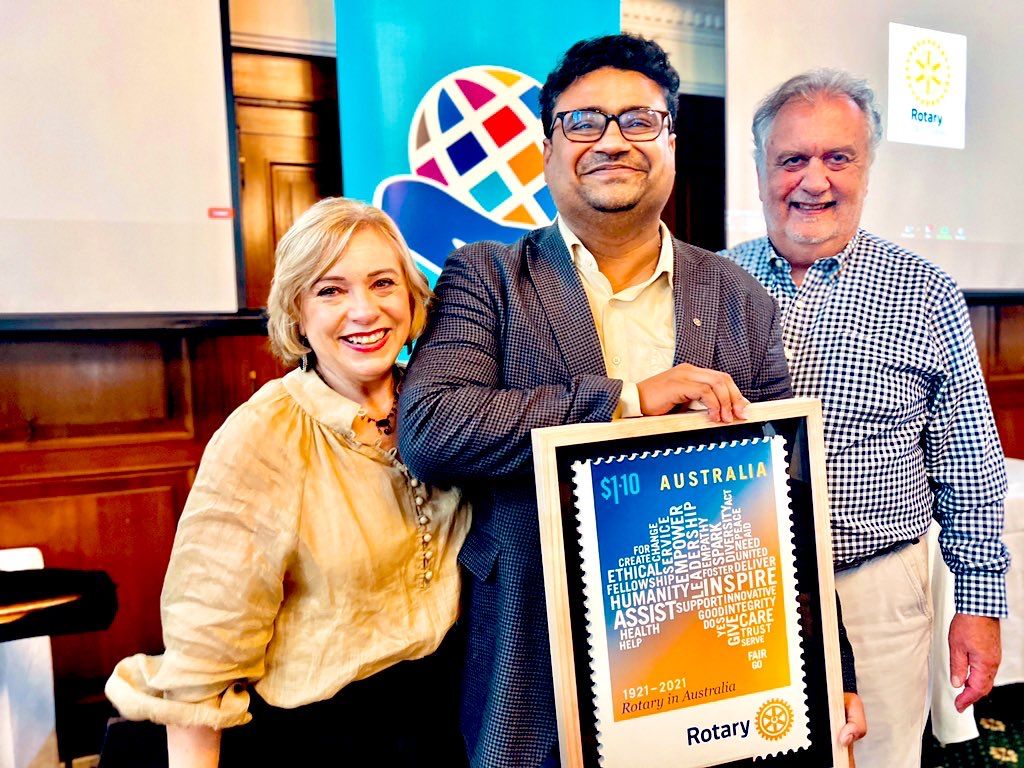
Determined to uncover the causes of cryptogenic strokes, Dr. Bhaskar drew inspiration from cancer bio-banks to develop a blood clot bio-bank. He started working on the project in 2017, and after working tirelessly for two-and-a-half years towards establishing a centre that could help neurodivergent persons, the health leader launched NSW Brain Clot Bank in 2019. The same year, Dr. Bhaskar was awarded two European Academy of Neurology (EAN) Investigator Awards for his dedication and innovation.
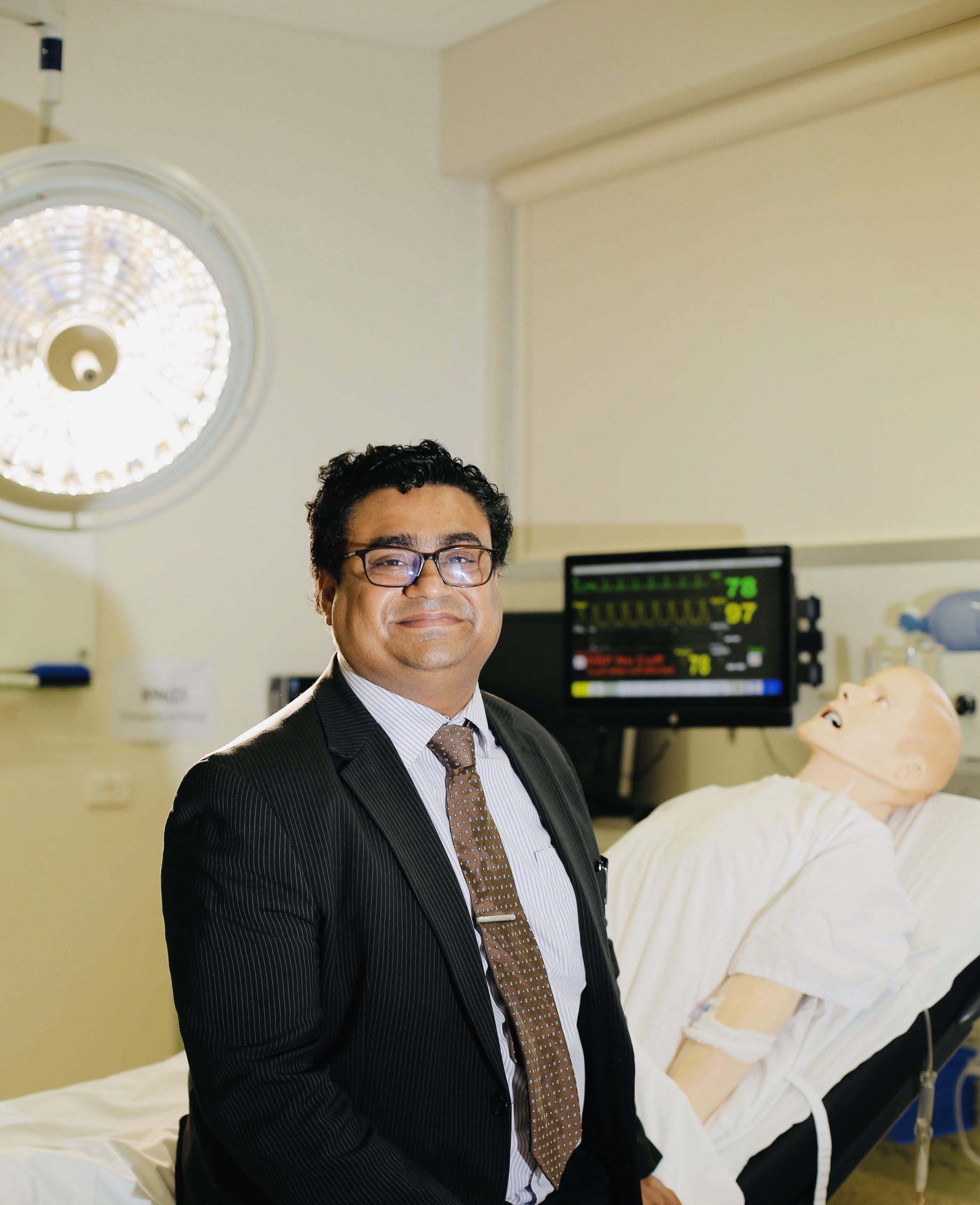
“By using this practice, we can enhance clinical practice. Our hope is to utilise this bank to assist patients globally and share our data. We already possess hundreds of samples that can be applied for treatment purposes. I aspire for the research from our bank to benefit patients in remote regions of Australia, India, and beyond, making a significant difference in their lives,” shares the health leader, who eventually opened a satellite bio-bank in Liverpool, England. “I hope to prevent deaths due to stroke and improve healthcare for patients in remote corners of the globe, by sharing data and collaborating with researchers worldwide,” the health leader shares.
An academic, who also gives many lectures in schools and colleges, Dr. Bhaskar is working towards establishing a more diverse and inclusive community. “To date, my grandfather remains my greatest source of inspiration. I remember, once when I had come back from school crying, after a child had bullied me. He told me then that people may want you to change, but one must always stay true to one’s authentic self. That wisdom continues to resonate with me even today,” shares the health leader, who despite his busy schedule, takes out time to enjoy classical music, travel, play chess, and write poetry.


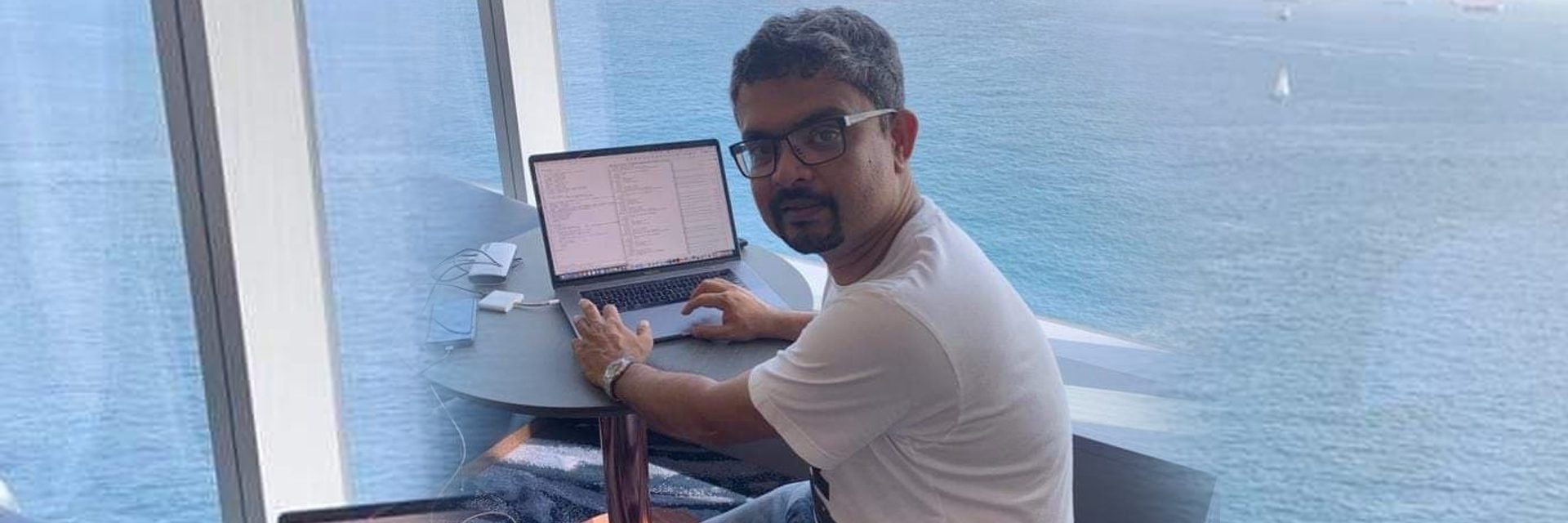
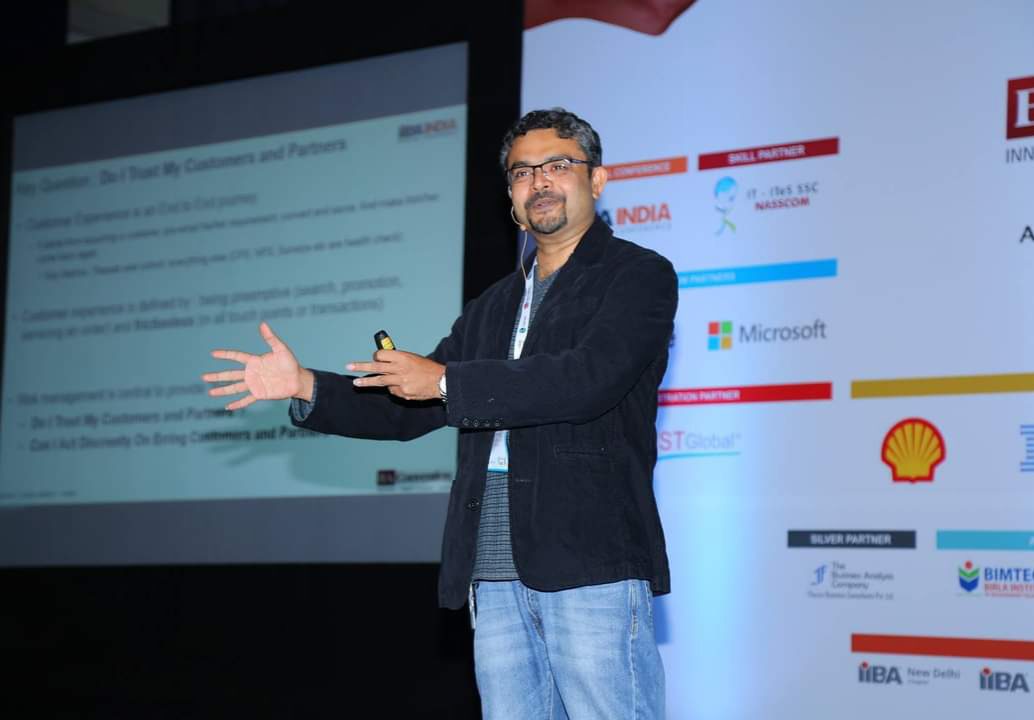
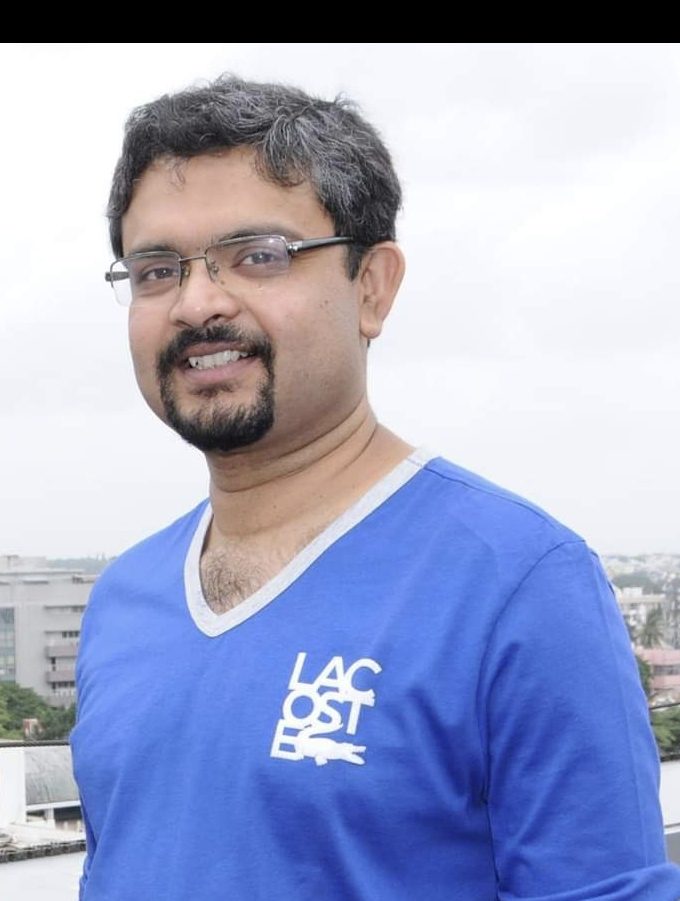

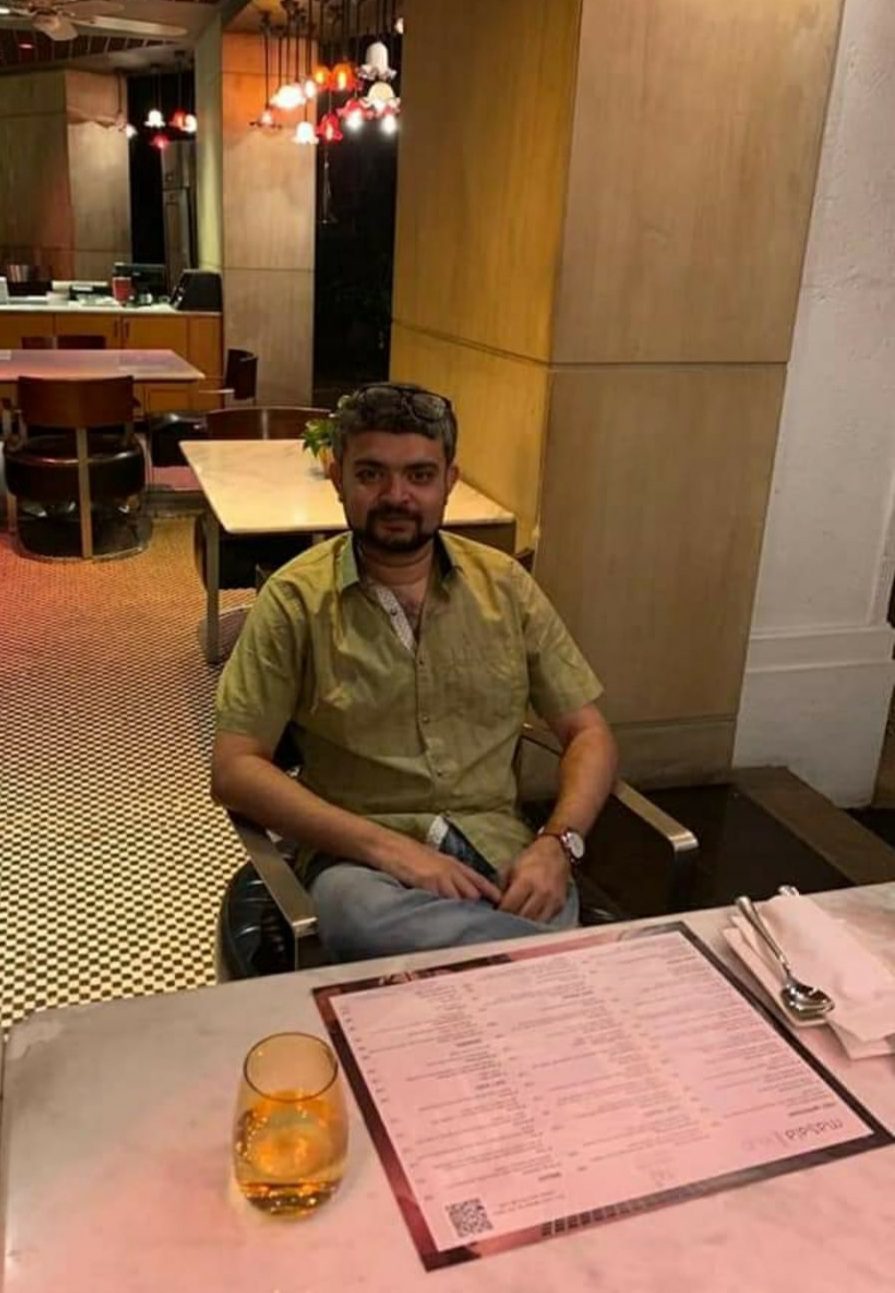

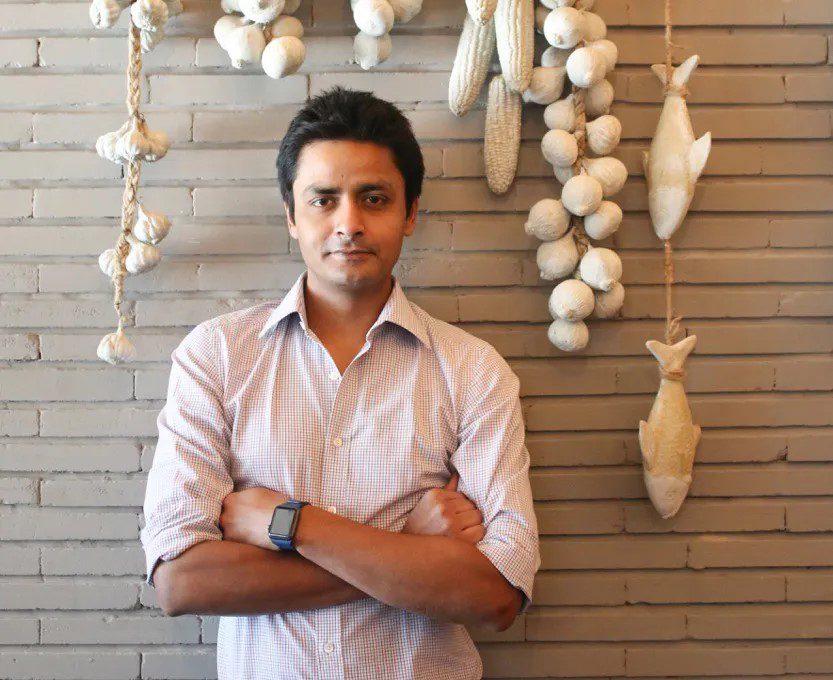 Manu Chandra, founder, Single Thread Catering[/caption]
Manu Chandra, founder, Single Thread Catering[/caption]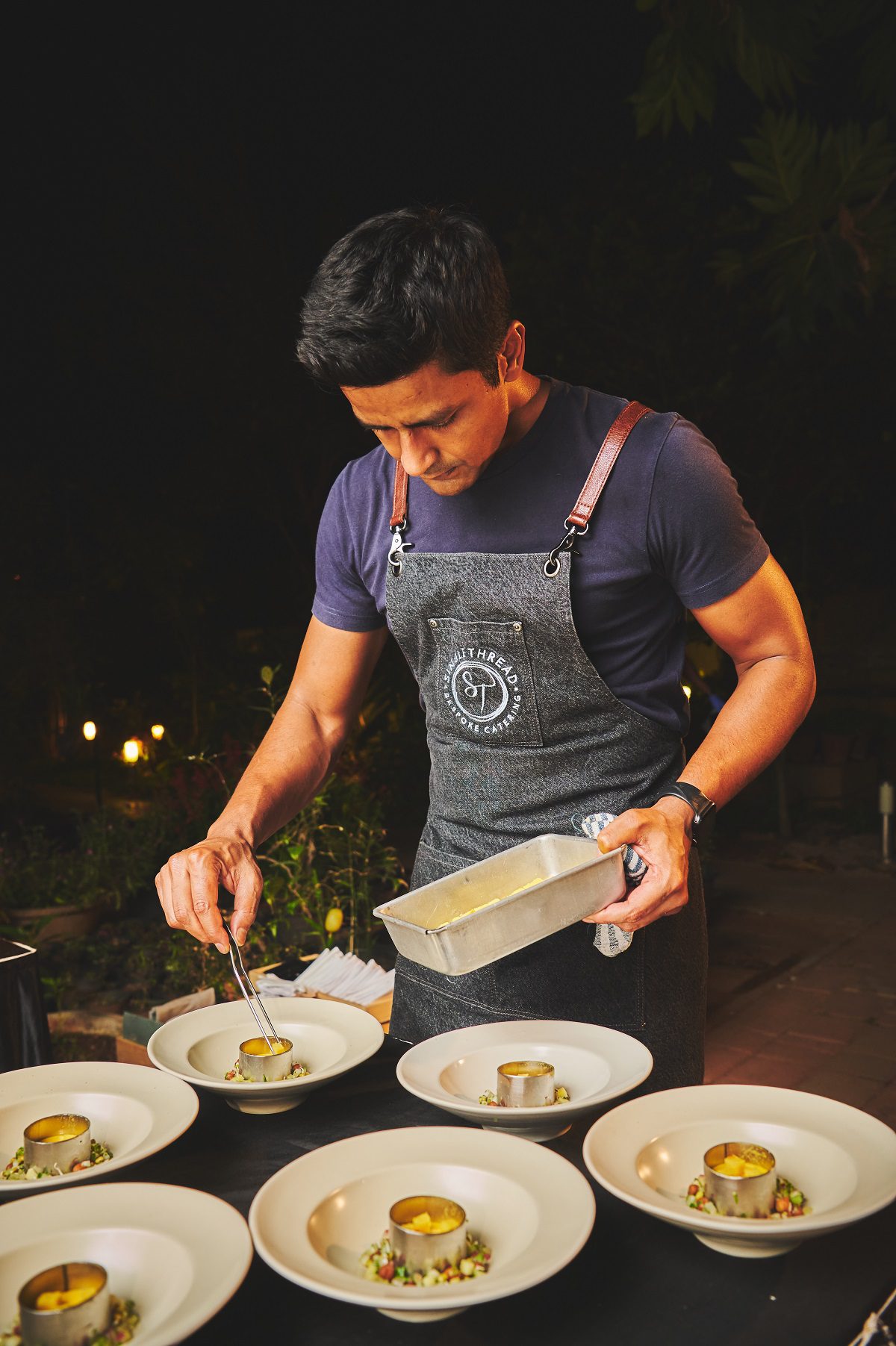

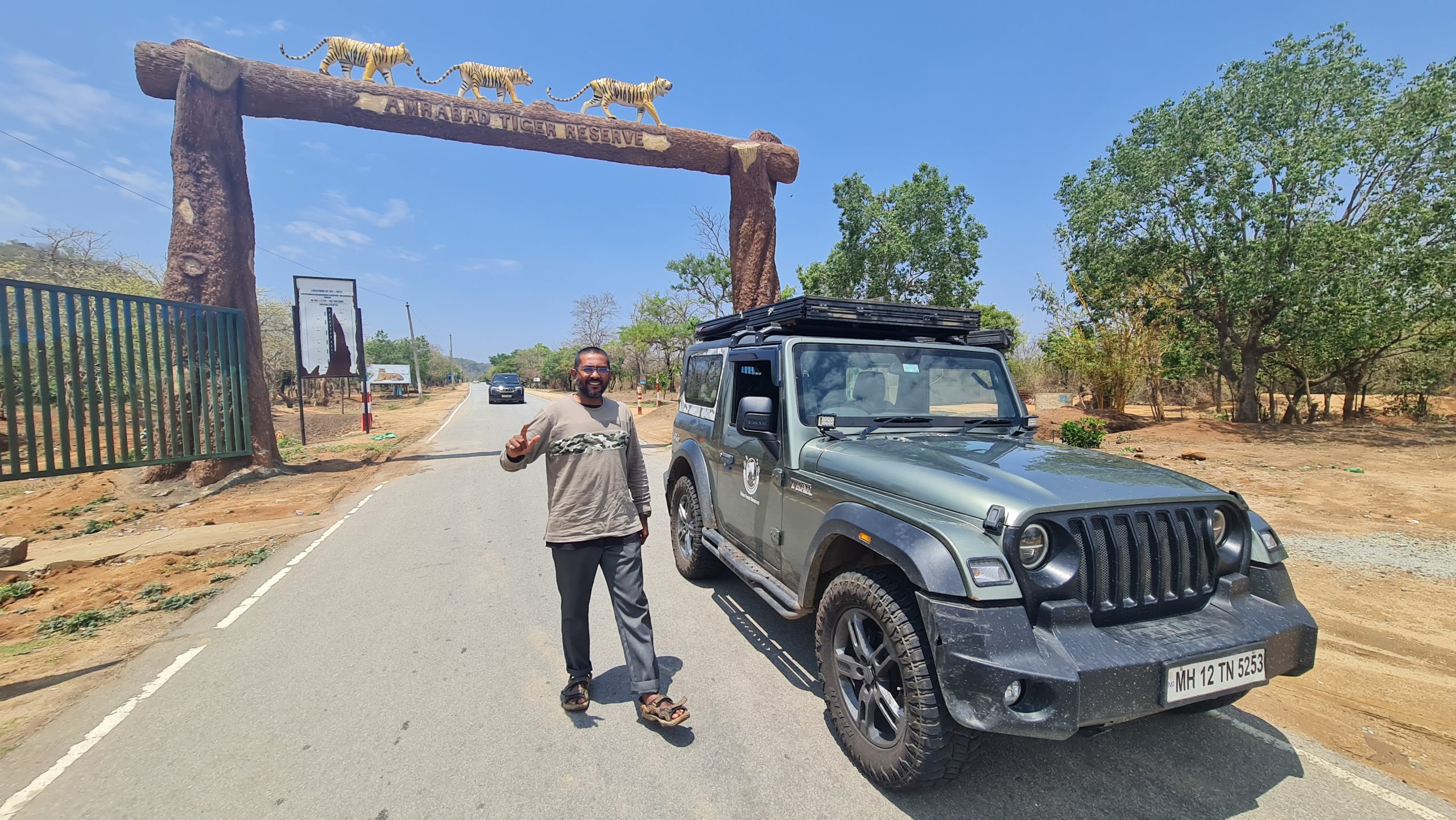 Tehzoon Karmalawala[/caption]
Tehzoon Karmalawala[/caption]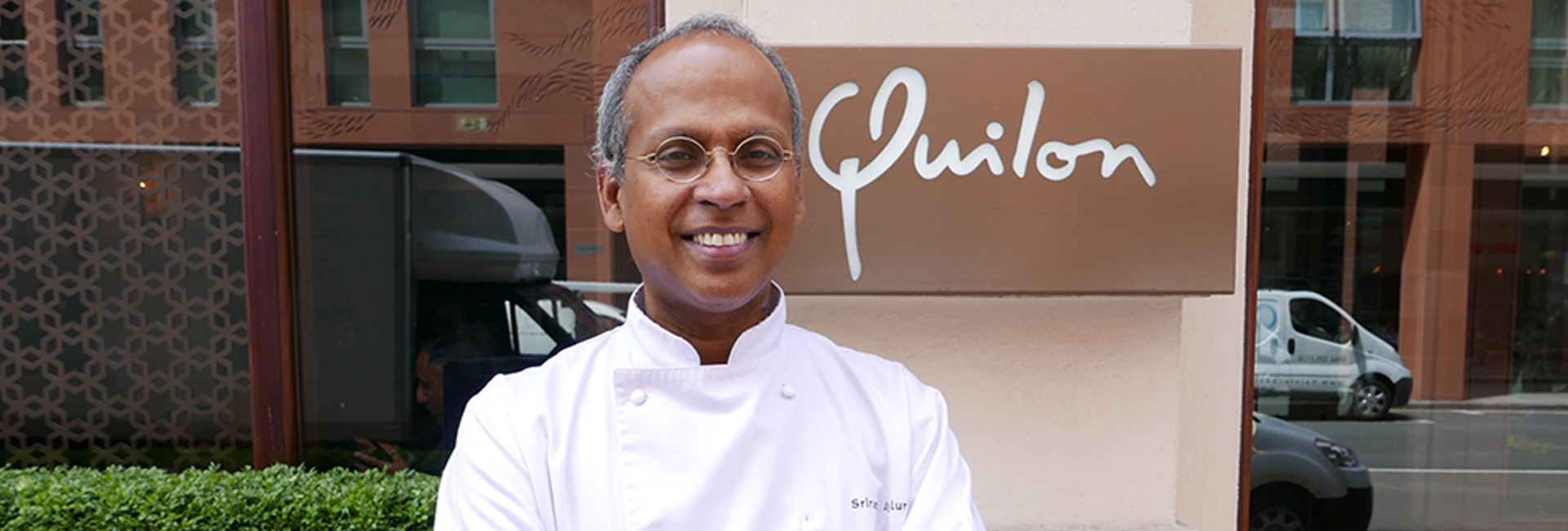
 Sriram Aylur preparing food at his restaurant.[/caption]
Sriram Aylur preparing food at his restaurant.[/caption]
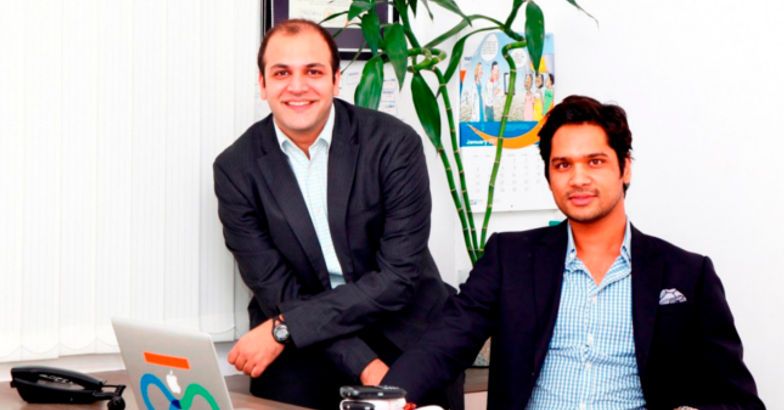 Aamir Jariwala and Akshat Ghiya co-founded the startup Karma Recycling[/caption]
Aamir Jariwala and Akshat Ghiya co-founded the startup Karma Recycling[/caption]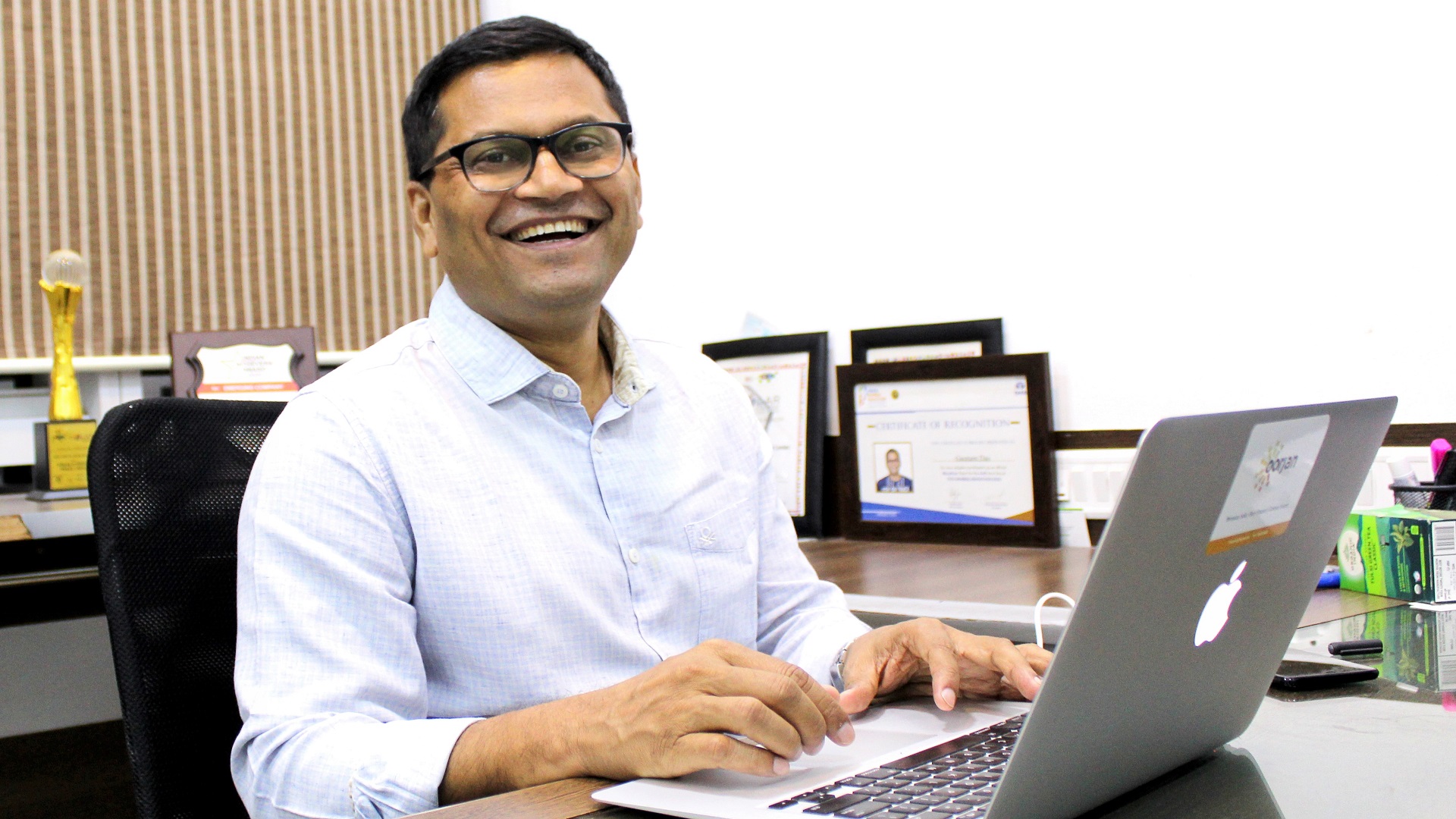 Gautam Das is one of the founders of Oorjan[/caption]
Gautam Das is one of the founders of Oorjan[/caption]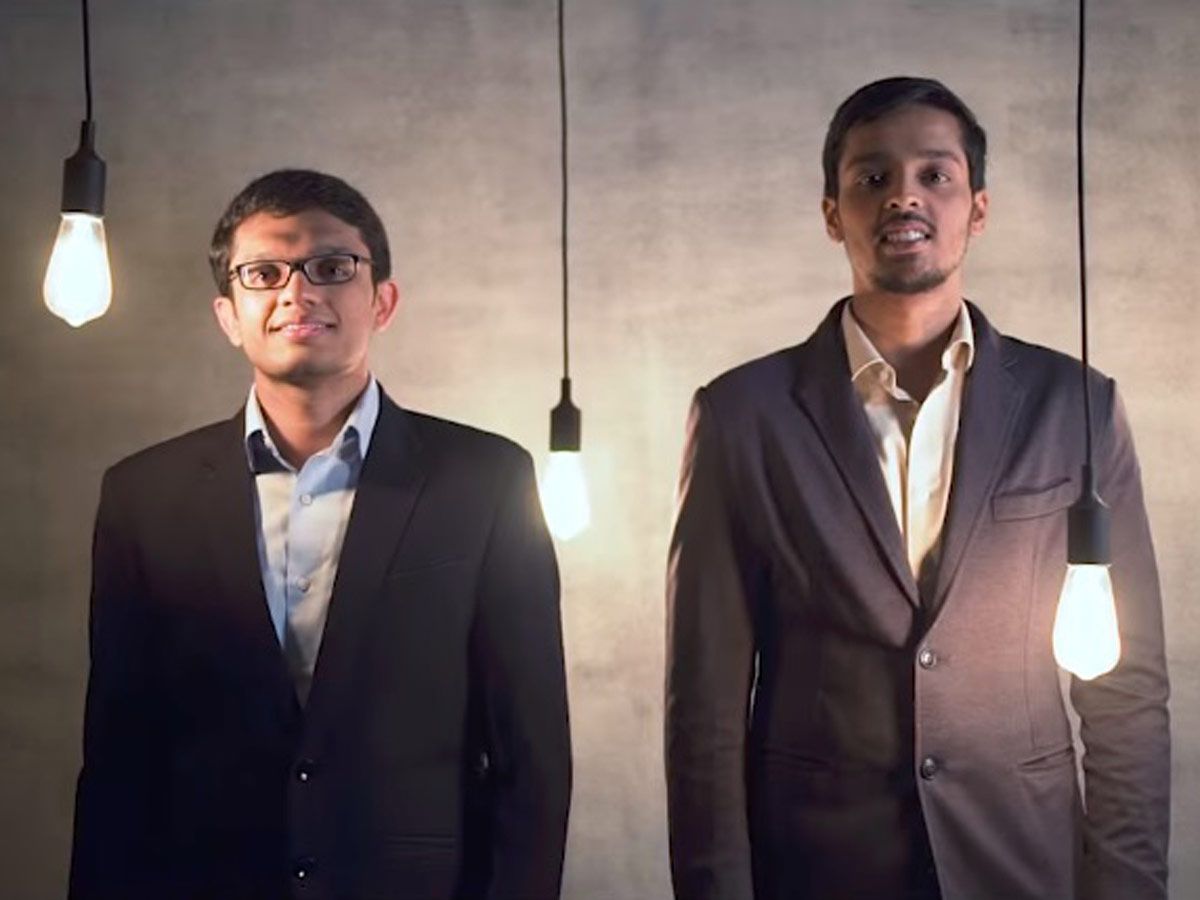 Akshay Singhal and Kartik Hajela are the co-founders of Log 9[/caption]
Akshay Singhal and Kartik Hajela are the co-founders of Log 9[/caption]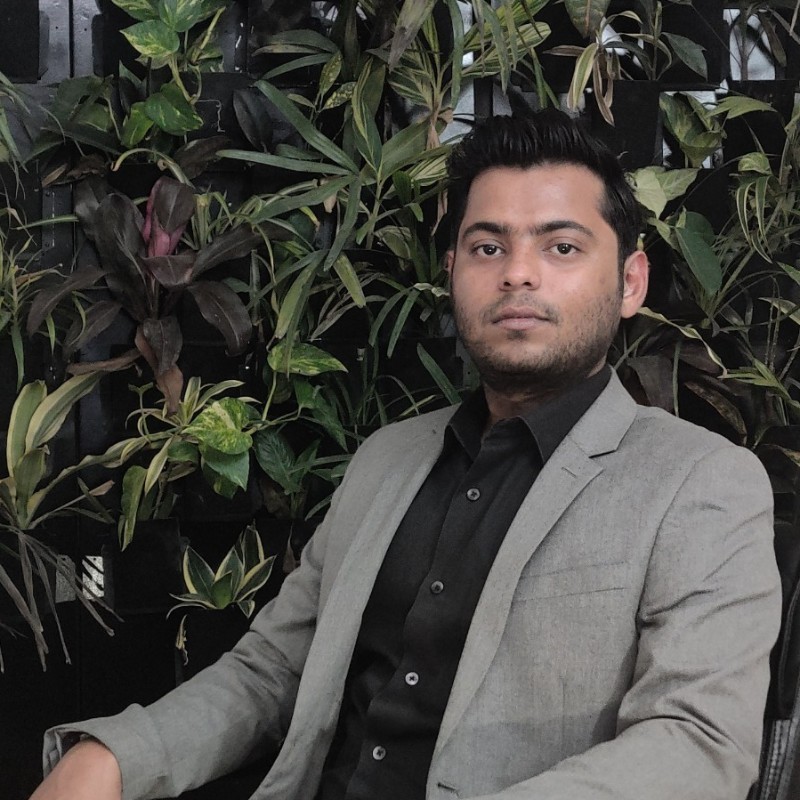 Abhishek Gupta launched OxyGarden in 2019[/caption]
Abhishek Gupta launched OxyGarden in 2019[/caption]